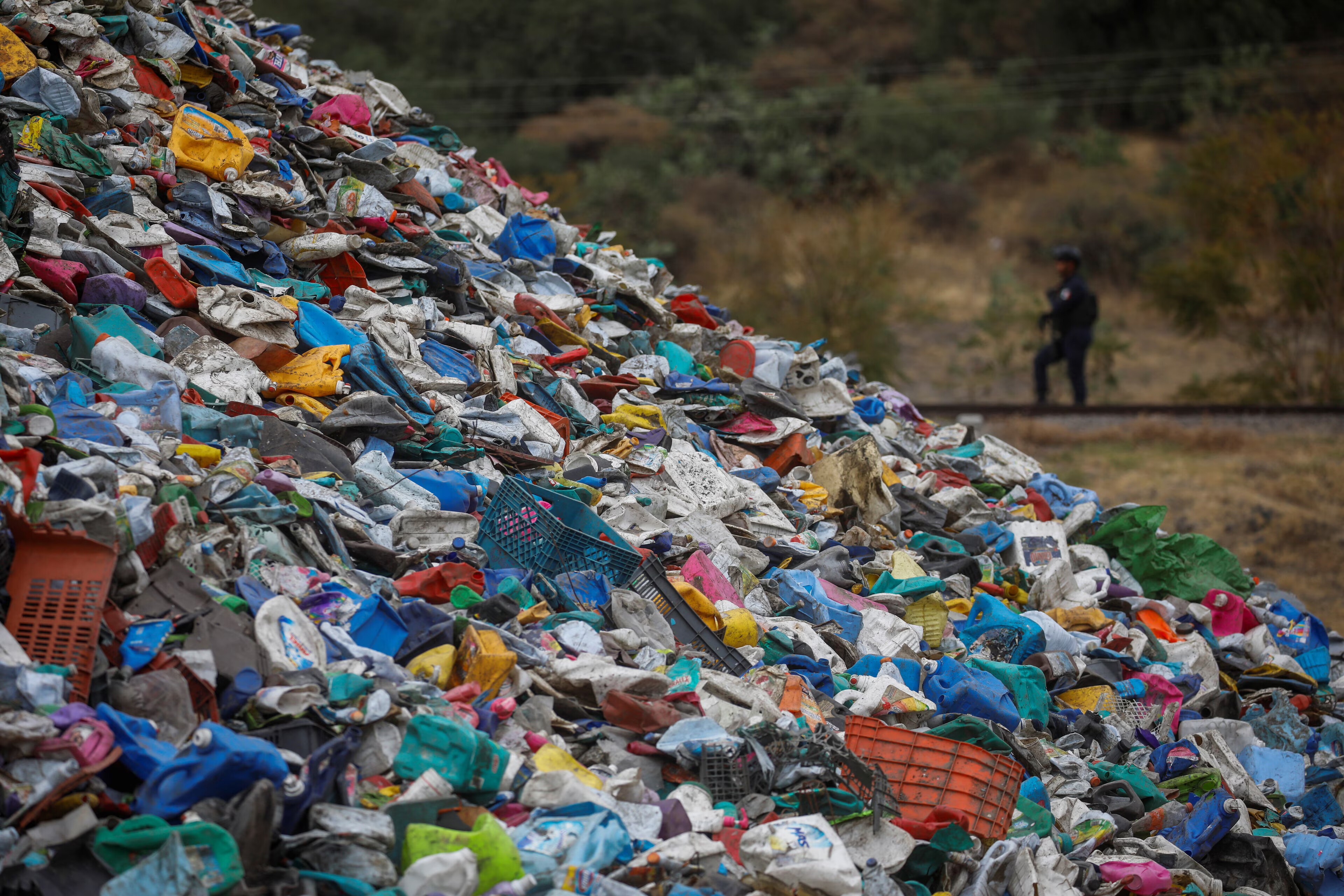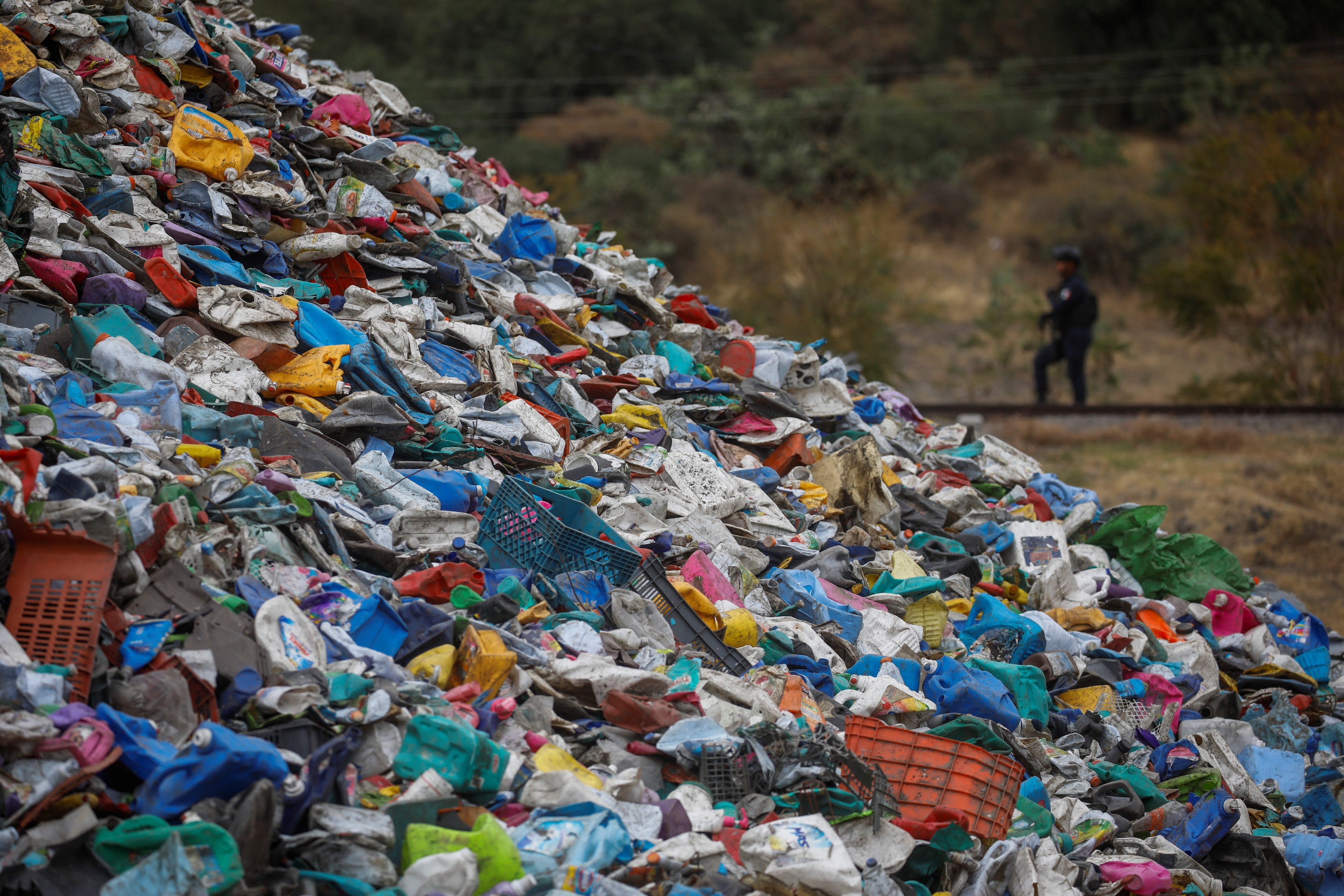
Here’s how businesses can navigate border carbon adjustments embedded in trade
Industry experts provide their views on border carbon adjustments and emissions in trade preparedness and accounting.
Pedro is a Member of the Executive Committee at the World Economic Forum leading the work on industry decarbonization. Before holding this position, Pedro led the Forum’s work Mobility leading the transport sector’s agenda on sustainability, business resilience and inclusiveness. Prior, he was Head of the Partnership Against Corruption Initiative team (steering one of the longest-standing collective action initiatives in this field). He was also part of the leadership of the Energy Team at the Forum where he oversaw the production of the Energy Transition Index and Oil and Gas industry transformation. Prior to joining the Forum, Pedro served at the Mexican Ministry of Energy as Director for Sectoral Studies where he contributed energy reform & transition policies and at Pemex. In Academia, he was Research Fellow at the Oxford Institute for Energy Studies working on the political economy of energy in Latin America and Chevening Fellow at the University of Edinburgh’s Business School where his focus was low-carbon investment and finance. He was also a senior consultant for Deloitte’s energy practice and was a Partner at the Swiss-based Shipbroking Firm 1.8.9 Shipping GmbH. Pedro holds a Master’s Degree from St Antony´s College at the University of Oxford.
Industry experts provide their views on border carbon adjustments and emissions in trade preparedness and accounting.
2025年8月、スイスのジュネーブで政府間交渉委員会(INC-5.2)の第2部会議が開催されます。設計・生産からリサイクル・廃棄に至るまで、プラスチックのライフサイクルを包括的にカバーする法的拘束力を伴う国際文書の策定を目的とするこの条約は、プラスチック汚染の解決に向けた大きな転換点となるでしょう。
This month's global plastic treaty negotiations in Geneva must be matched by real-world impact informed by the voice of those most affected by this pollution.
Las compras verdes se han vuelto fundamentales para lograr los objetivos climáticos. Esto se concluyó en un evento co-organizado por el Foro Económico Mundial.
サステナブルな調達は、気候変動目標の達成に欠かせないものとなっており、最高調達責任者(CPO)は変化を推進する上で最適な立場にあります。調達の役割を高め、幅広い協力を実現し、長期的な成果を築くために、多角的なアプローチがどのように必要とされているかを検討します。
Sustainable procurement has become central to achieving climate goals. This issue was discussed at a recent event co-hosted by the World Economic Forum.
Cada vez hay más conciencia política y apoyo a iniciativas para mejorar los suelos del mundo – pero los agricultores también necesitan apoyo tecnológico y financiero.
土壌の健康改善は、炭素隔離と介入のカスタマイズを通じて気候変動対策の重要な鍵となります。世界の土壌を改善するための対策に対する政治的な意識と支援の機運が高まっています。農家は、規模を拡大してサステナブルな食糧生産に移行するために、個々に合わせた資金、技術、技術サポートを必要としています。
There is growing political awareness and support for measures to enhance the world's soils – but farmers also need technological and financial support
Priorizar la naturaleza y el clima puede ser compatible con el crecimiento económico y la creación de valor, si las organizaciones utilizan estrategias coordinadas y positivas para la nat...
Prioritizing nature and climate can be compatible with economic growth and value creation if organizations use coordinated nature-positive strategies.
COP28是签署了《联合国气候变化框架公约》的198个国家即将召开的一次会议,将于11月30日至12月12日在阿拉伯联合酋长国举行。会议的四个主题横跨多个领域,旨在解决气候变化问题并控制地球变暖的影响。世界经济论坛最新发布的《全球风险报告》将气候变化列为十大威胁之一。
La Cumbre del Clima de la ONU, COP28, se celebra este mes en un momento crítico. Esto es lo que hay que saber sobre la reunión y por qué es tan importante.
The COP28 climate summit convenes this month at a critical moment. Here's what to understand about the UN Climate Summit and why it's so important.
Net zero by 2050 remains the ultimate goal – but we must harness transition technologies in the meantime to stand a chance of getting there













